On the afternoon of April 8, at the Vietnam Institute of Culture, Arts, Sports and Tourism (VICAST), the Dialogue "Cultural soft power" took place.
The program was attended by Mr. Franck Bolgiani, Director of the French Institute in Hanoi ; Associate Professor, Dr. Nguyen Thi Thu Phuong, Director of VICAST; Mr. Frédéric Martel, writer and lecturer at ZHdK University, Zurich, along with scholars and researchers at VICAST and the French Institute in Vietnam.
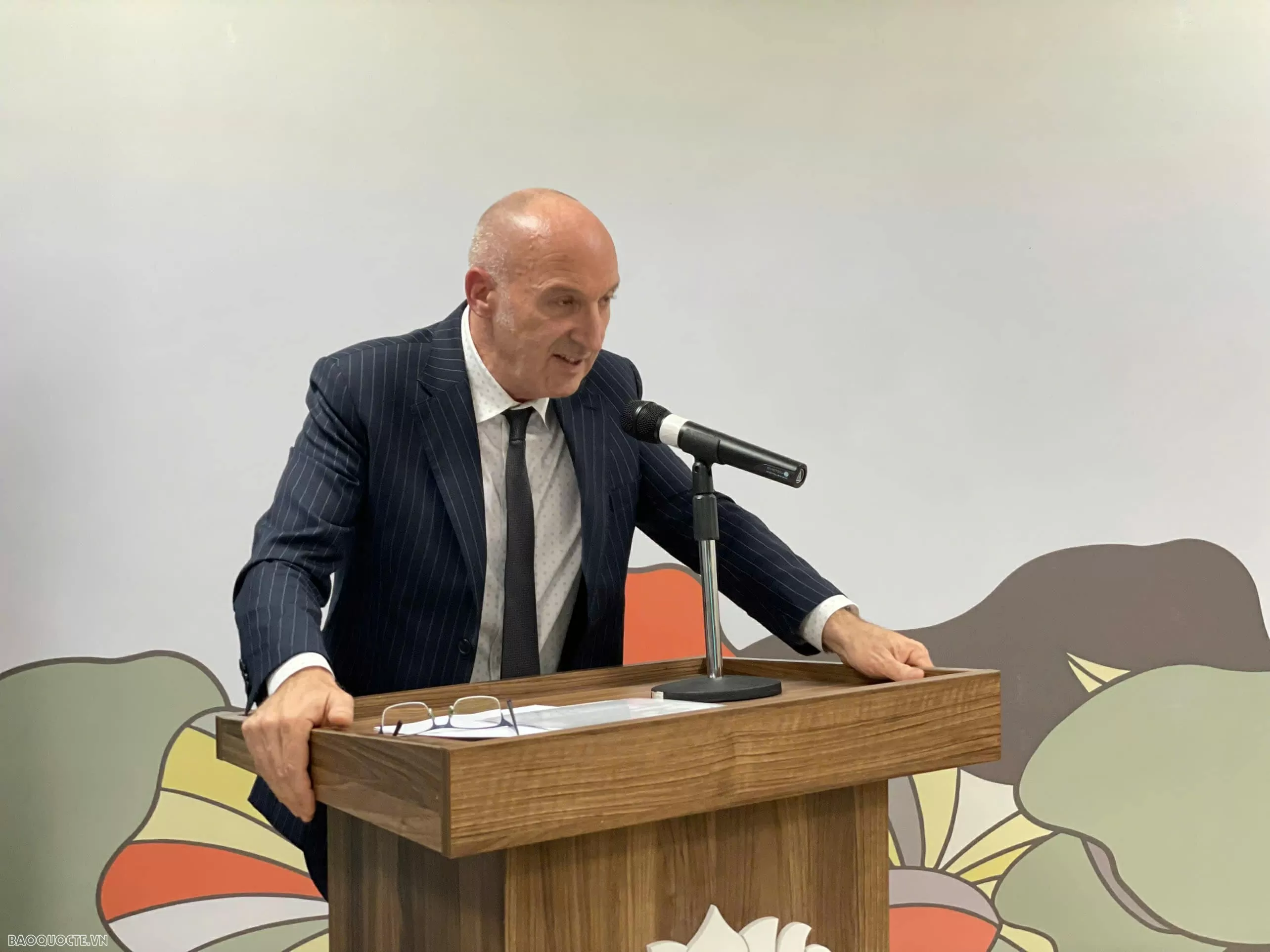 |
| Director of the French Institute in Hanoi Franck Bolgiani affirmed that France wishes to accompany Vietnam in discussing and proposing measures to promote the development of cultural and creative industries. (Photo: Huong Giang) |
In his opening speech, Director of the French Institute in Hanoi Franck Bolgiani affirmed the importance of developing soft power for each country today.
According to Mr. Franck Bolgiani, to do this, countries should not only rely on the model of the US, South Korea... but need to firmly adhere to national culture. Clearly identifying the limitations and benefits of soft power is essential to increase the country's influence and prestige in the world , attract tourists and receive more investment projects to develop new culture and ideas.
| Related News |
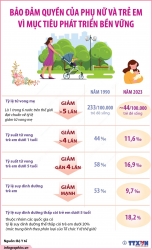 Vietnam: Action for women and children's rights in the journey of sustainable development Vietnam: Action for women and children's rights in the journey of sustainable development |
Mr. Franck Bolgiani also emphasized that the two countries have signed the Cultural Cooperation Program for the period 2024-2028, therefore, France wishes to accompany Vietnam in discussing and proposing measures to promote the development of cultural and creative industries.
Discussing solutions to help Vietnam promote its soft power in the integration era, Mr. Frédéric Martel, writer and lecturer at ZHdK University, Zurich, pointed out that Vietnam has the potential to become an important cultural center in the region.
To achieve this, a comprehensive strategy is needed, combining the role of the state in cultural policy formulation, the involvement of the market and the cultural industry, and support from civil society organizations.
In addition, training and developing talents in the fields of culture and arts at universities also need to be prioritized.
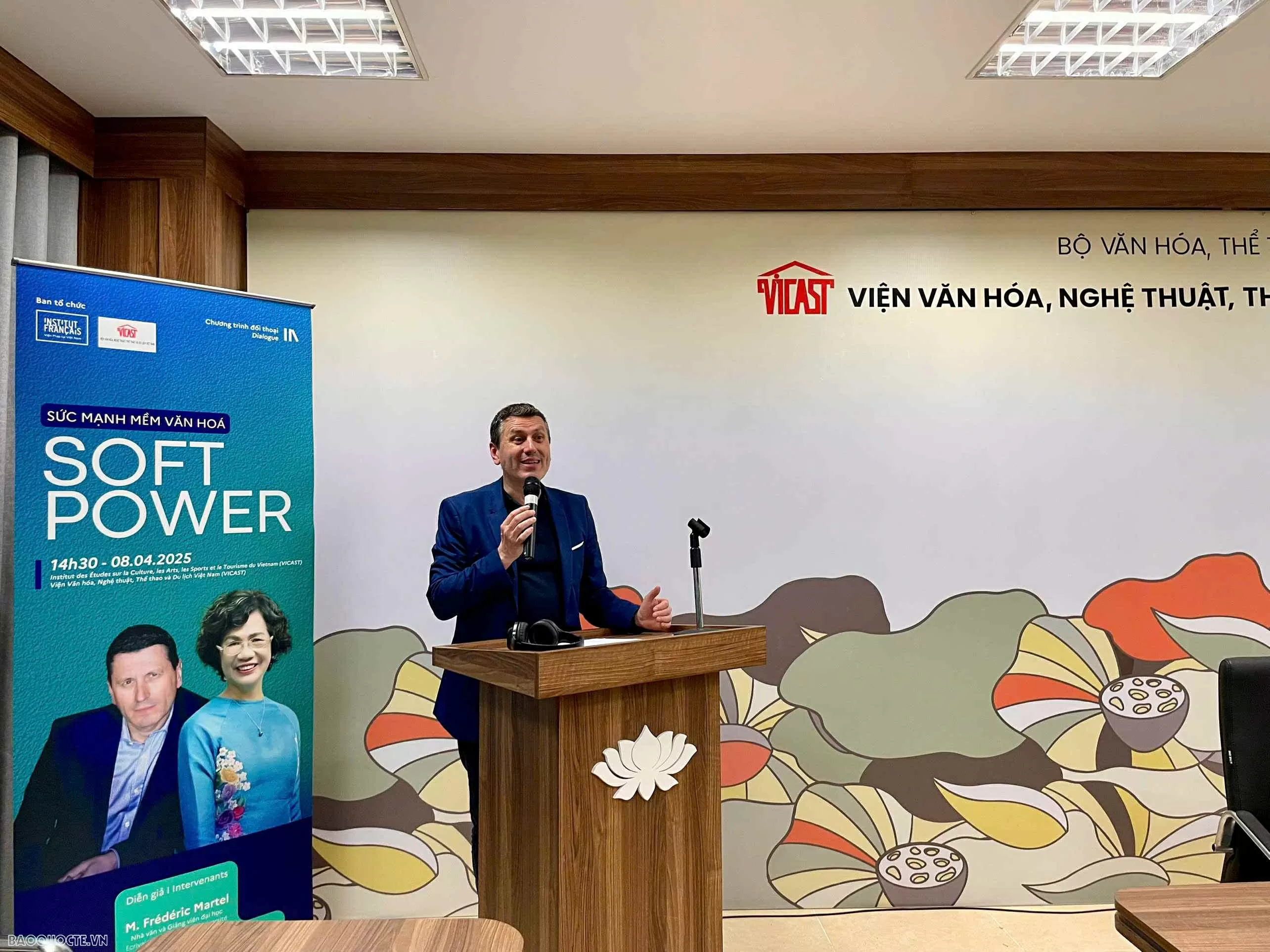 |
| Mr. Frédéric Martel, writer and lecturer at ZHdK University, Zurich, pointed out that Vietnam has the potential to become an important cultural center in the region. (Photo: Huong Giang) |
In addition, Mr. Frédéric Martel also said that the Vietnamese Government should focus on building resources to support artists to develop their ideas, while taking advantage of technology platforms to promote the national image and culture.
On the VICAST side, Associate Professor Dr. Nguyen Thi Thu Phuong pointed out some bottlenecks in developing Vietnam's soft power and proposed new directions. According to Ms. Phuong, although Vietnam has a golden population and young workforce, domestic cultural products are still inferior to foreign goods, being overwhelmed by products from Korea, Japan and China.
The cultural industry still lacks the combination of creativity, technology, copyright and faces policy barriers, so it has not created strong brands that can reach the international level. The lack of connection between cultural diplomacy, cultural industry and media reduces the effectiveness of the goal of developing soft power.
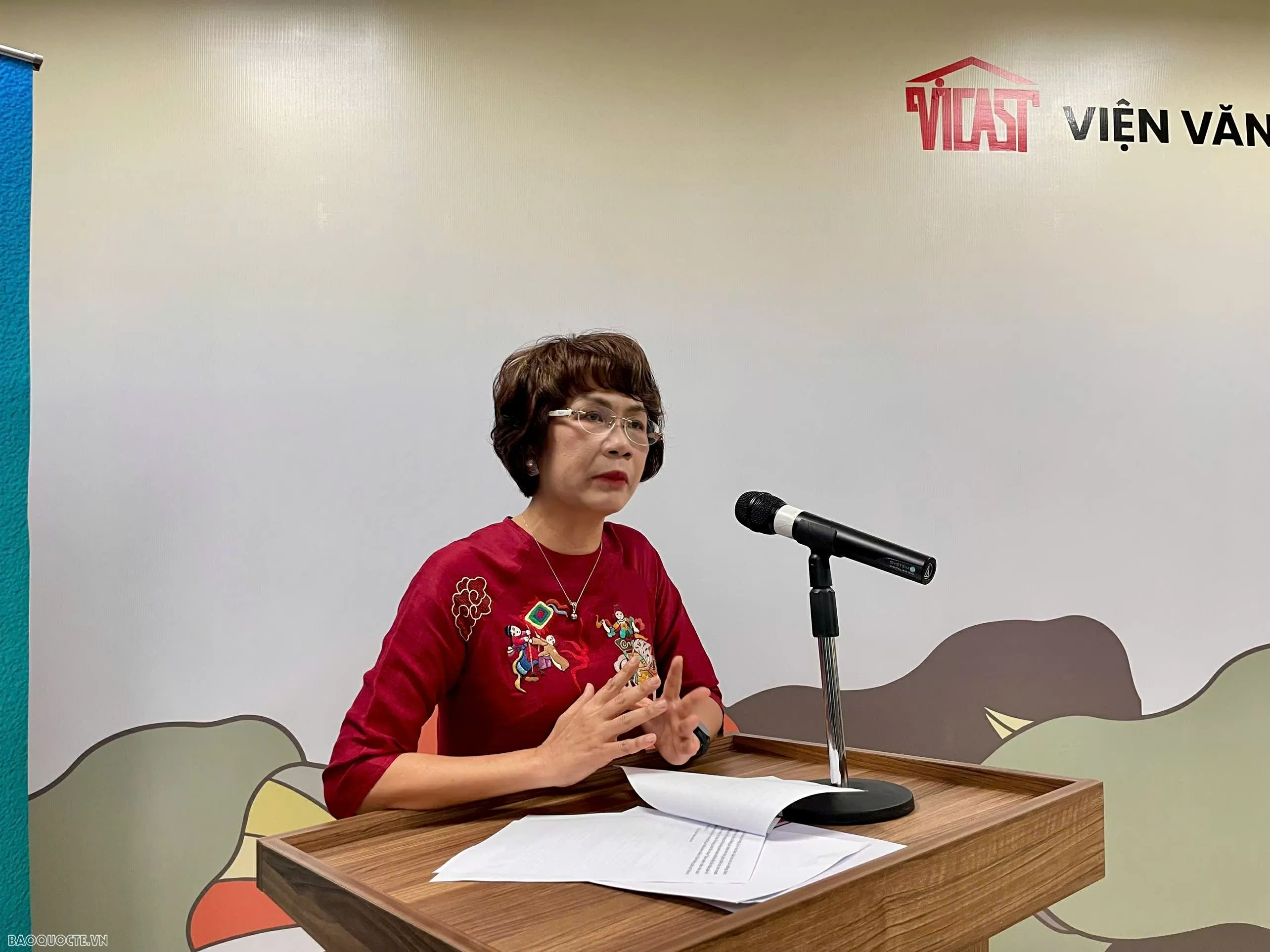 |
| Associate Professor, Dr. Nguyen Thi Thu Phuong pointed out some bottlenecks in developing Vietnam's soft power and proposed new directions. (Photo: Phuong Thao) |
Accordingly, Associate Professor Dr. Nguyen Thi Thu Phuong also suggested solutions to promote Vietnam's soft power in the international arena, including: Increasing cultural diplomacy channels, strengthening strategic communication to promote images, building a creative city brand in the UNESCO Creative Cities Network (UCCN)...
In an interview with The World and Vietnam Newspaper, Associate Professor Dr. Nguyen Thi Thu Phuong said that when it comes to promoting cultural soft power domestically, it means exploiting Vietnamese culture to attract the domestic community. This requires an environment that encourages creativity, based on the unique cultural identities of the nation. For example, traditional motifs of ethnic minorities need to be harmonized between preservation and the creative hands of modern designers to create attractive tourism products.
Or the development of music programs such as Anh trai vuon ngan cong gai and Anh trai say hi demonstrate the effort to develop the cultural industry to create domestic appeal. These are not only entertainment products but also convey pride and love for national culture, creating a strong cultural flow in every Vietnamese person.
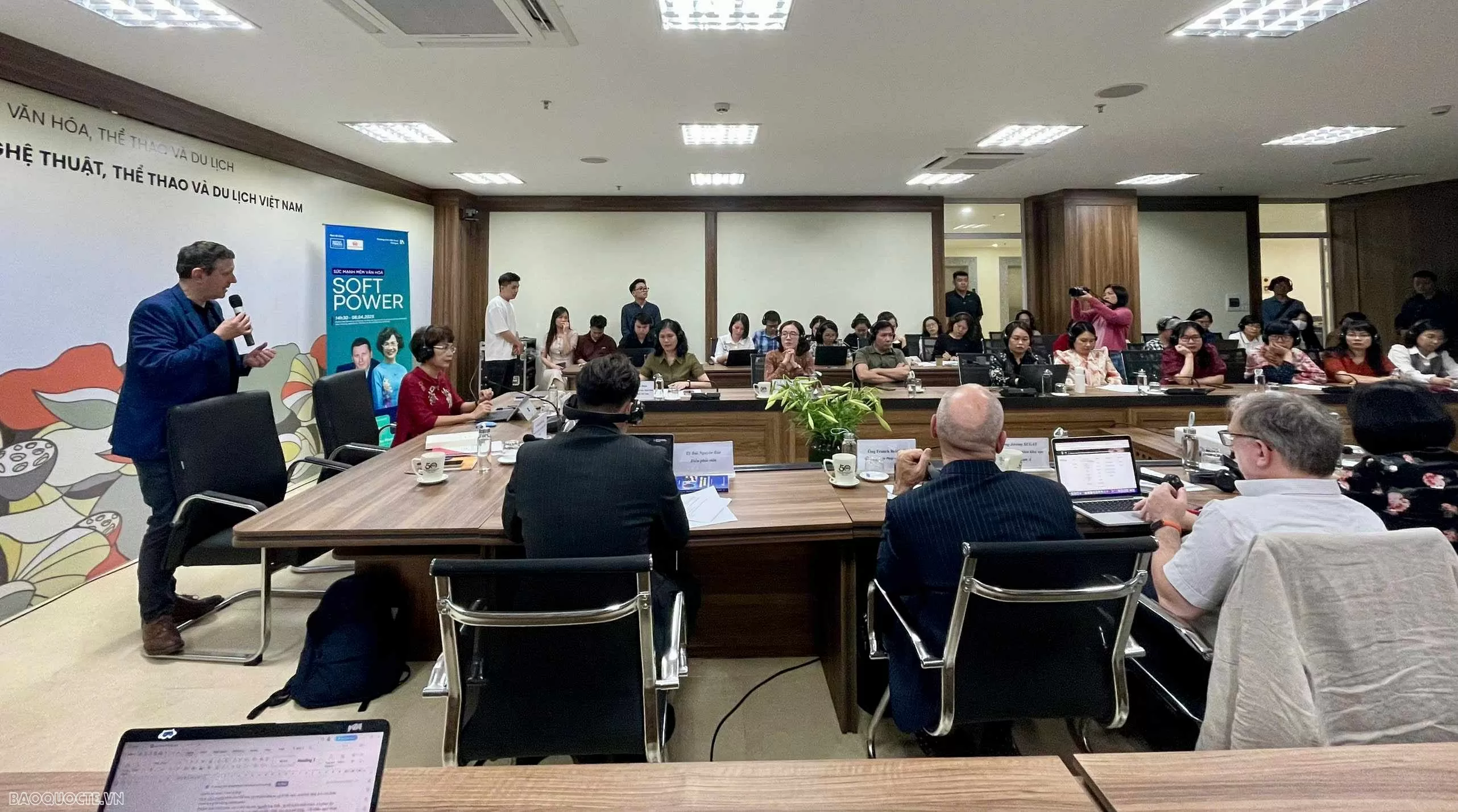 |
| Overview of the dialogue. (Photo: Huong Giang) |
Mr. Frédéric Martel also gave advice to Vietnam in promoting its cultural identity without becoming a copy of other Southeast Asian countries, which is to find a balance between integration and preservation. This requires Vietnam to follow the rules of international exchange while still protecting traditional values. In addition, it is necessary to preserve the diversity of cultural identity in music, cinema and traditional arts.
The French expert affirmed that the government needs to avoid narrowly dividing and imposing a framework on the cultural sector, and at the same time have policies to support the development of the cultural industry, as well as artists.
Closing the event, Dr. Hoang Thi Binh, Deputy Director of VICAST, summarized the main points discussed at the Dialogue.
Source: https://baoquocte.vn/phap-chia-se-kinh-nghiem-van-dung-suc-manh-me-m-trong-phat-tri-n-nga-nh-cong-nghiep-van-hoa-310532.html


![[Photo] General Secretary To Lam visits exhibition of achievements in private economic development](https://vphoto.vietnam.vn/thumb/1200x675/vietnam/resource/IMAGE/2025/5/18/1809dc545f214a86911fe2d2d0fde2e8)

![[Photo] More than 17,000 candidates participate in the 2025 SPT Competency Assessment Test of Hanoi National University of Education](https://vphoto.vietnam.vn/thumb/1200x675/vietnam/resource/IMAGE/2025/5/17/e538d9a1636c407cbb211b314e6303fd)


![[Photo] National conference to disseminate and implement Resolution No. 66-NQ/TW and Resolution No. 68-NQ/TW of the Politburo](https://vphoto.vietnam.vn/thumb/1200x675/vietnam/resource/IMAGE/2025/5/18/adf666b9303a4213998b395b05234b6a)







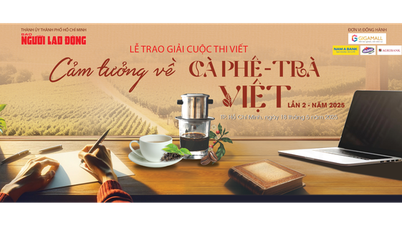





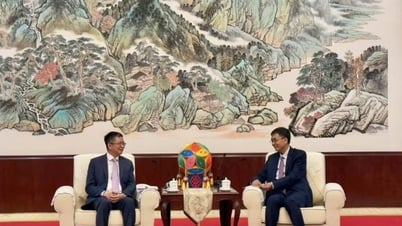
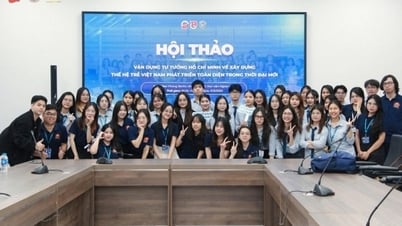
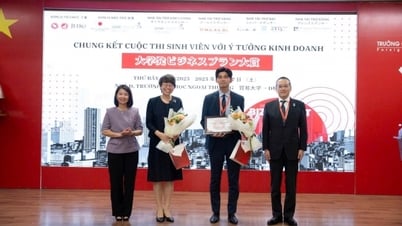
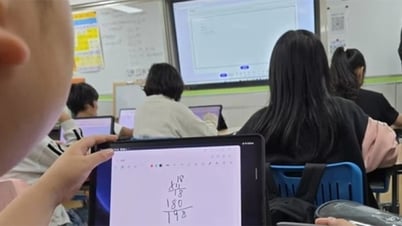

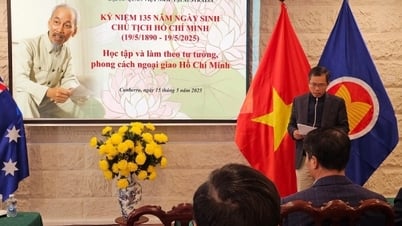
![[Photo] Prime Minister Pham Minh Chinh chairs meeting on science and technology development](https://vphoto.vietnam.vn/thumb/1200x675/vietnam/resource/IMAGE/2025/5/17/ae80dd74c384439789b12013c738a045)













































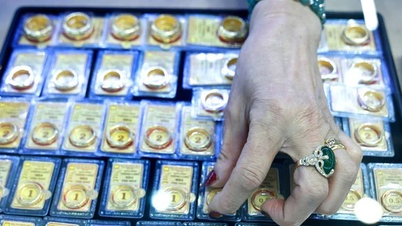



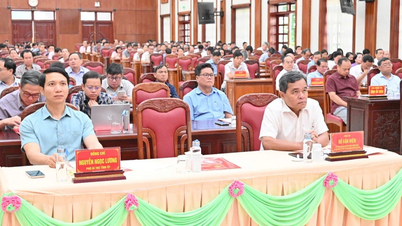
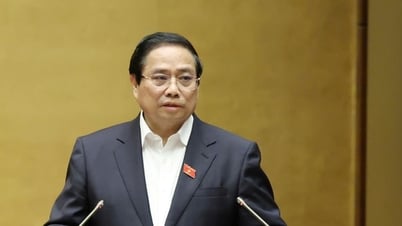
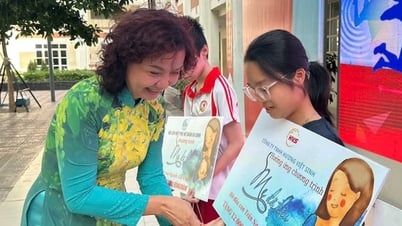
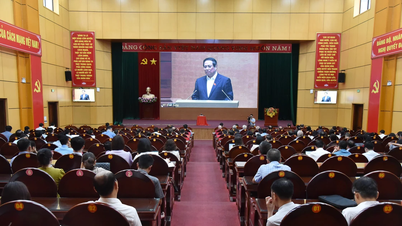










Comment (0)